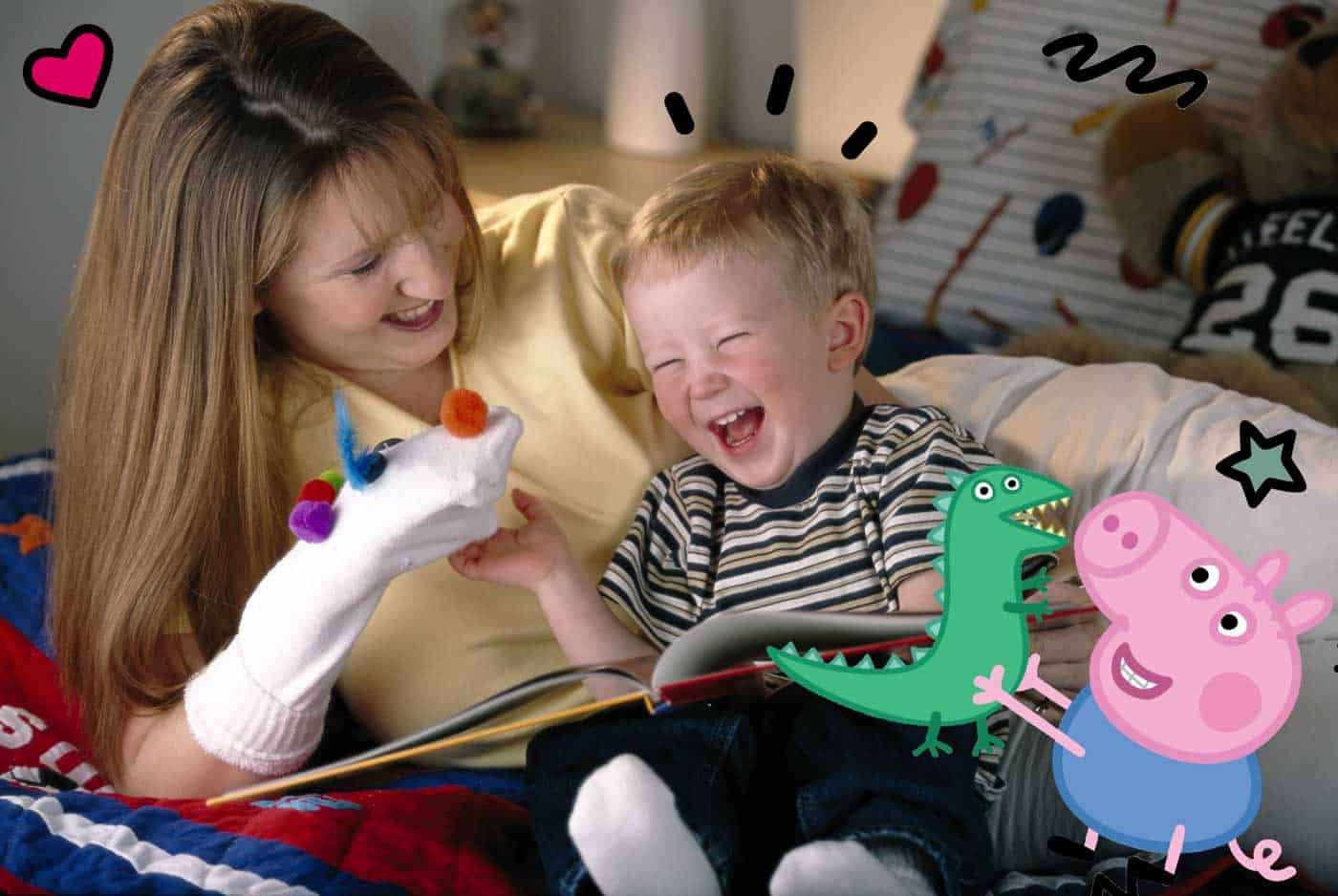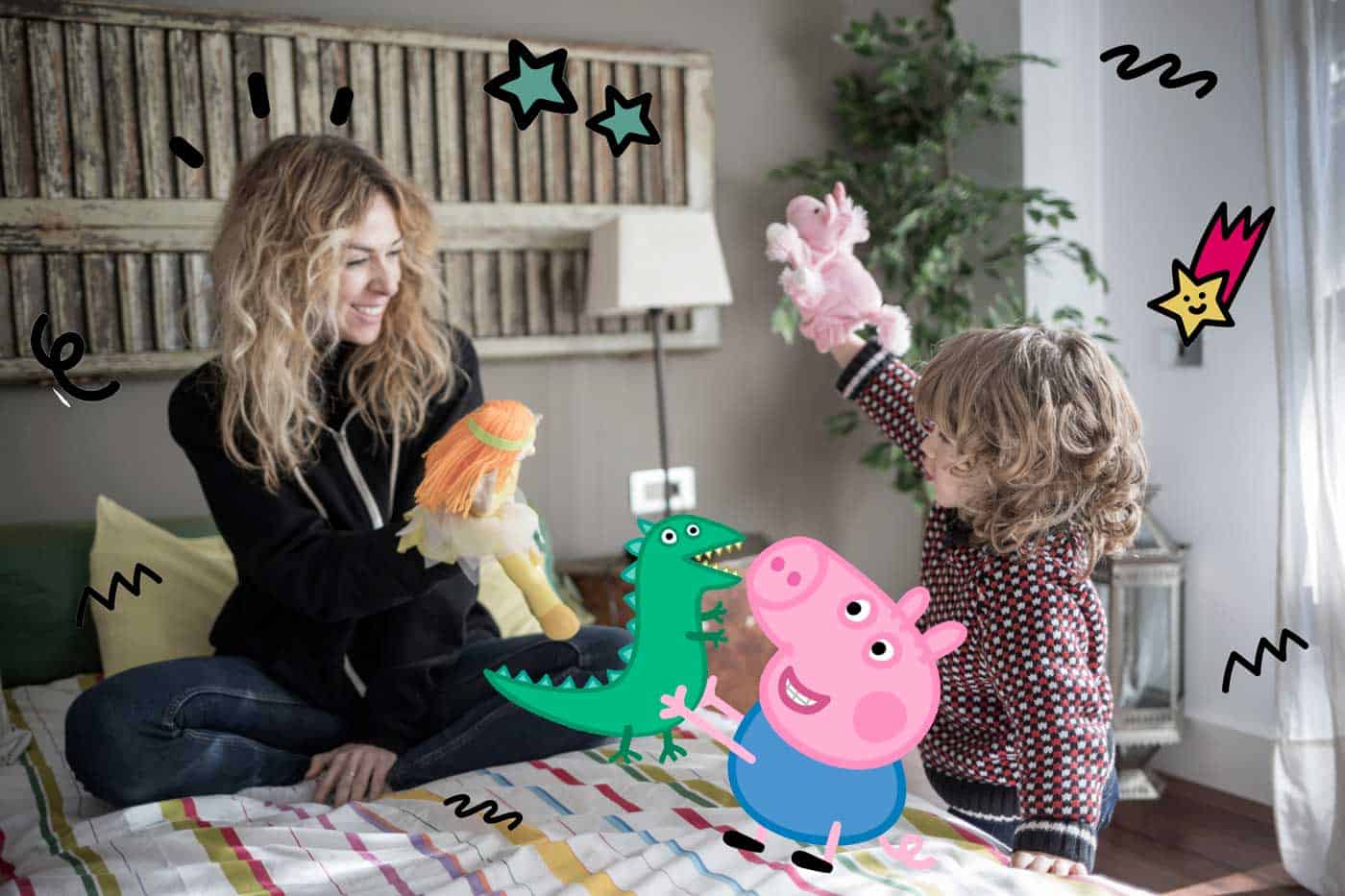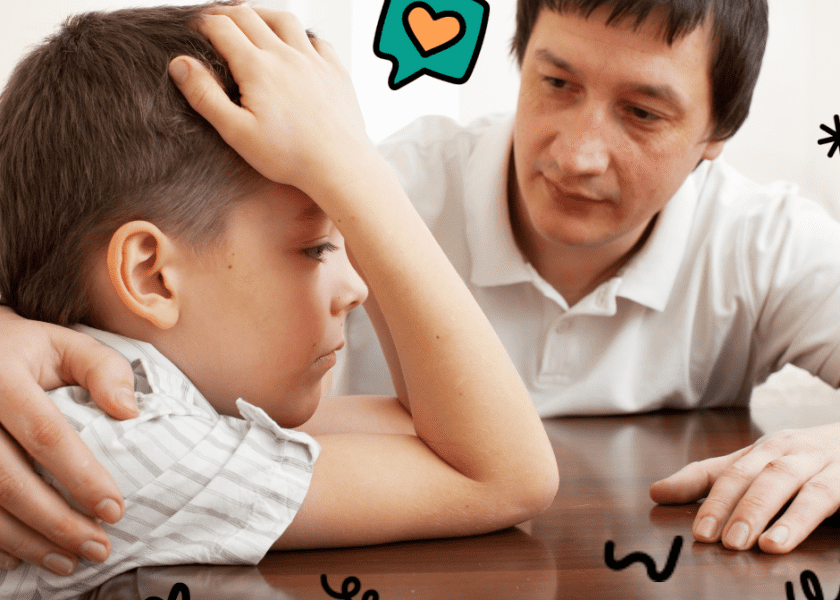Puppet Problems
Sometimes our stuffed friends — like George Pig’s friend Dinosaur — can be surprisingly expressive!
You can use puppets (or plain old socks over your hands) to help your child practice social emotional skills like empathy, sharing, and especially self expression. When children interact with puppets, they are free to explore emotions and rehearse interpersonal conflicts without feeling like they are being tested or put on the spot.
This activity is designed to help children rehearse specific phrases they can use in a range of situations: “I don’t like that!” and “I DO like that. Thank you!”
Parent/Caregiver Tip: Create opportunities for your child to practice saying simple phrases like, “Stop,” “Can I have a turn?” and “I don’t like that!” so that they have the words to communicate when conflicts arise.

Hungry Puppet (for toddlers)
Materials
- Puppet or sock, toys
Instructions
- I just put a sock on my hand — it’s a puppet now!
- My puppet is hungry! Can you feed the puppet a toy?
- This puppet only likes to eat certain things. If you don’t feed it something that it likes, it says, “No thanks, I don’t like that!” Can you find something that the puppet likes to eat?
- Keep trying to find things that the puppet likes to eat. When you find something that the puppet likes, it will say, “Yum, I DO like that! Thank you!"
- Now it’s your turn to use the puppet. I’ll try to feed your puppet and you can help the puppet say, “I don’t like that” and “I DO like that!"
Vocabulary

Hungry Puppet (for little kids)
Materials
- Puppet or sock, toys
Instructions
- I put a sock on my hand — now it’s a puppet!
- My puppet is hungry!
- Try to feed my puppet a toy. The puppet says, “I don’t like that!” This puppet has a secret: it only likes to eat certain things like toys that are the same color or toys with wheels.
- Try to figure out what my puppet likes to eat. The puppet will guide you by saying, “I don’t like that”” or “I DO like that!"
- When you figure out what the puppet likes (and the puppet is full), let’s switch roles: I’ll feed the puppet and you can say, “I don’t like that” or “I do like that."


